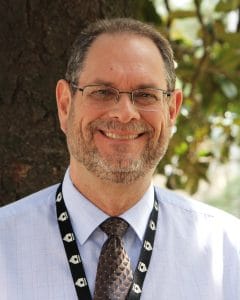 By Jim Seckman, MAC, CACII, CCS“One of our responsibilities as counselors is to have healthy boundaries. These boundaries can easily become blurred if, or when, we begin to intrude on the personal lives of clients outside the professional relationship.
By Jim Seckman, MAC, CACII, CCS“One of our responsibilities as counselors is to have healthy boundaries. These boundaries can easily become blurred if, or when, we begin to intrude on the personal lives of clients outside the professional relationship.“Professional judgment includes how we conduct ourselves in public, even in our leisure time, which includes what we post on a Facebook page for all to view.”
– Frances Patterson, PhD, MAC, To Facebook or Not to Facebook, NAADAC News, March/April 2012
Social media (e.g. Facebook, Twitter, etc.) has become an integral part of our lives. No matter how active our involvement, we cannot deny the impact that this form of communication has had on our society. Social media has given us unprecedented abilities to communicate to large numbers of people, and therein lies the problem. Whether we like it or not, we leave behind a digital footprint nearly everywhere we go. Dialogue placed within social media outlets is broadcasted to the public arena, whereby individuals read and interpret such communication any way they wish.
Reputations, both personally and professionally, have become tarnished in an instant; confidential information can quickly become public knowledge; and company bad-mouthing can spread like wildfire.
We, as citizens, have the constitutional right to freedom of speech; however, as addiction treatment professionals, we have an ethical responsibility to represent our field, our colleagues and our facilities, in both our professional and personal lives, with respect, courtesy, sensitivity and fairness. When we lose sight of this responsibility, our boundaries loosen, and that can lead to ethical violations in the form of dialogues that are inappropriate, insensitive to colleagues and hurtful to clients.
Most ethical standards and confidentiality laws have not really caught up with what is taking place in the world of social networking. But, the NAADAC NCC AP Code of Ethics was revised in 2016 and offers guidelines by which we as treatment professionals can determine the ethical implications of our social media involvement. In the previous NAADAC Code of Ethics, in the Introduction, it states:
“NAADAC recognizes and encourages the notion that personal and professional ethics cannot be dealt with as separate domains. […] Addiction professionals must act in such a way that they would have no embarrassment if their behavior became a matter of public knowledge and would have no difficulty defending their actions before any competent authority.”
The Code of Ethics states very clearly that professional ethics and personal ethics should remain consistent in the life of the treatment professional. Any actions, words or behavior, whether professional or personal, are held against the same standard. If we live our lives from two disparate ethical perspectives, we will not only experience internal conflict, but the negative viewpoints and behaviors of one will ultimately contaminate the more positive viewpoints and behaviors of the other as well.
However, while our ethical stance should be consistent in our lives, when it comes to Social Media, the Code of Ethics is very clear about the distinction between our professional and personal presence:
“Addiction professionals shall not accept client ‘friend’ requests on social networking sites or via email. Providers who choose to maintain a professional and personal presence for social media use, shall create separate professional and personal web pages, and profiles, which shall clearly distinguish between the professional and personal virtual presence.” – Principle VI-19 Friends
I think the important concept here is that of boundaries and how we use our “presence” to either benefit or harm the client.
“Addiction professionals shall be aware of their influential positions with respect to clients, trainees, and research participants, and shall not exploit the trust and dependency of any client, trainee, or research participant. Providers shall not engage in any activity that violates or diminishes the civil or legal rights of any client. Providers shall not use coercive treatment methods with any client, including threats, negative labels, or attempts to provoke shame or humiliation. Providers shall not impose their personal, religious, or political values on any client. Providers shall not endorse conversion therapy.” – Principle I-22 Exploitation
We have a lot of power as professionals. Often, we don’t understand just how much power we have in the lives of clients. When we make public our opinions and beliefs, particularly in a manner that comes across as forceful, it is no longer just a matter of debate or discourse. Our opinions are seen as having more value and authority by our clients. We must be extremely careful what we say, how we say it and where we say it.
How do we live our lives? As treatment professionals, we dedicate our working lives to the healing and benefit of others. Our personal lives should reflect the same dedication.
Oftentimes we might express things that we intended to be taken lightly or casually, but others interpret them as offensive. At that point, it no longer matters whether or not we intended them to be offensive—they simply are offensive. It is always our responsibility to consider our actions and, if necessary, make amends. Ethical guidelines exist so that, as treatment professionals, we have:
- A common understanding of expectations
- A corrective influence on personal bias/problems
- A common understanding and obligation among members of the profession
- Responsibility and accountability
- Boundaries for the protection of the client and the professional
Jim Seckman, MAC, has over 30 years of experience working in the field of addiction treatment in a variety of clinical settings, including inpatient, outpatient and residential. Jim is past president of GARR (Georgia Association of Recovery Residences), has served on the Ethics Committee for GACA (Georgia Addiction Counselors Association) and conducts regular training workshops on addiction treatment.